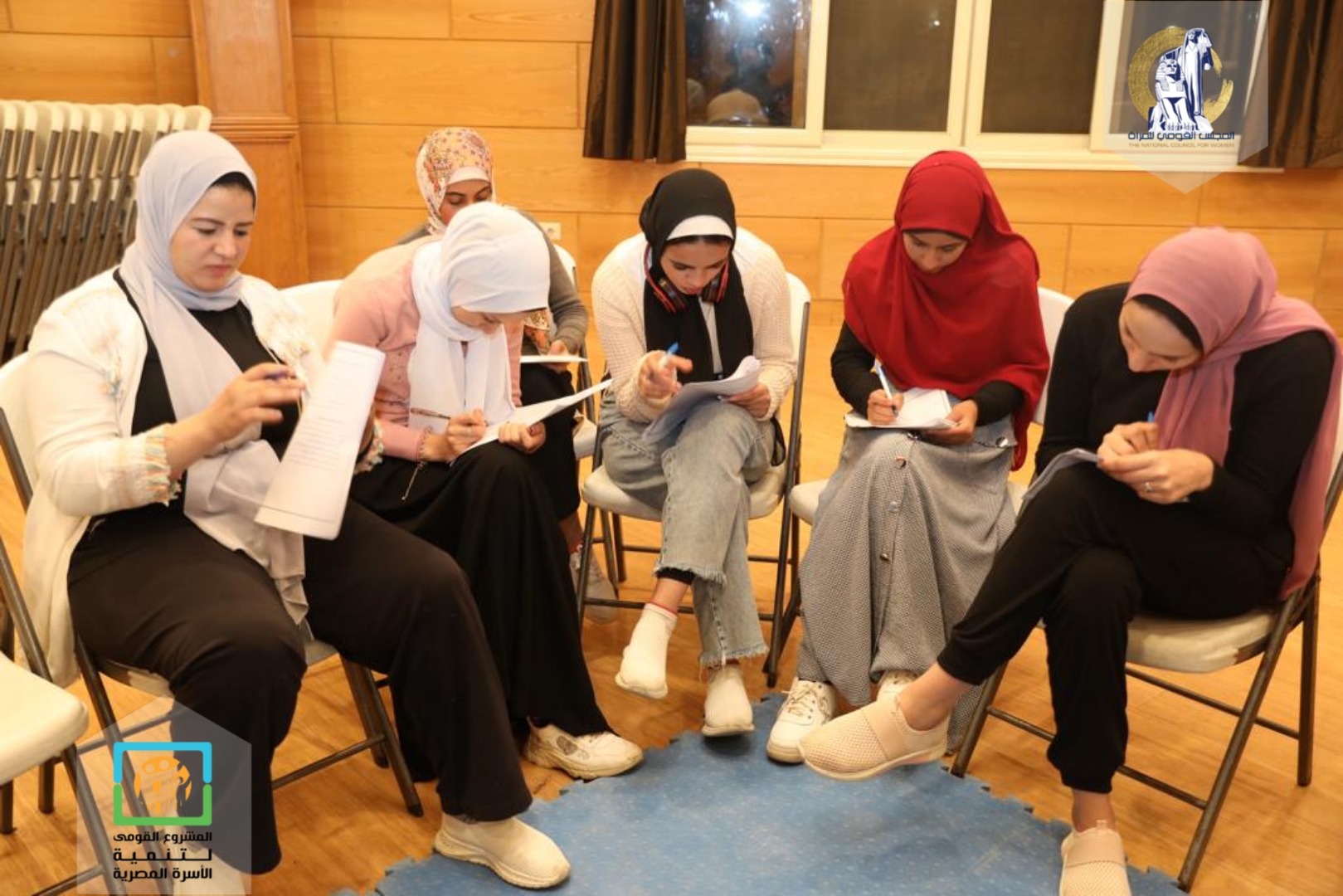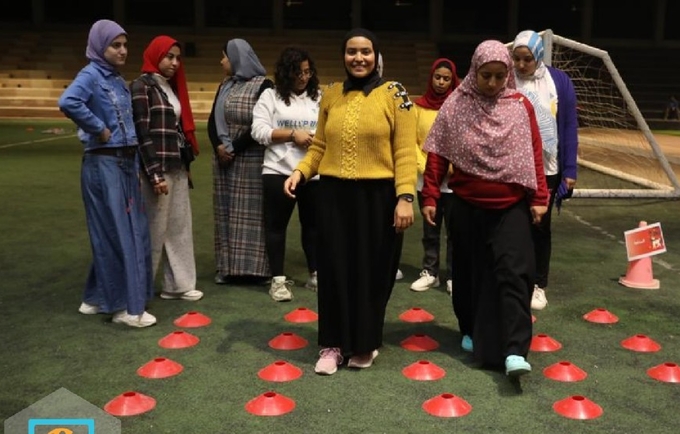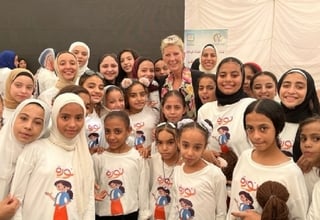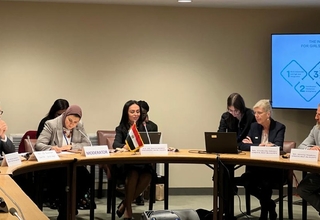Forty young women lined up equipped with their harnesses, and geared up to climb a six-meter pole and take on a High Ropes challenge.
The young women were instructed to move across platforms, through bridges and obstacles swinging in midair.
This activity came as part of the Mentors Camp, implemented with Well Spring in December where 40 young women underwent a three-day training program equipping them with skills and information to implement the Noura Framework with adolescent girls in their villages in Assiut.
The Noura Framework places girls aged 10-14 at the center, and empowers them by providing them with health, social, economic, and digital assets to make choices about their own lives. In cooperation with the National Council for Women, the sessions kicked off in villages in Assiut and soon in Sohag.
Noura is part of the National Girl Empowerment initiative, under the auspices of the First Lady Intissar al-Sisi. It is implemented within the framework of the National Program for the Development of the Egyptian Family by UNFPA and the National Council for Women.
 The Framework trains women aged 18-24 to become mentors of the asset-building program. Those mentors are coming from the same villages as the girls. They are meant to go through the same social health and economic assets building framework as well as acquire leadership roles along with digital and financial literacy to promote digital literacy skills, employability and economic empowerment.
The Framework trains women aged 18-24 to become mentors of the asset-building program. Those mentors are coming from the same villages as the girls. They are meant to go through the same social health and economic assets building framework as well as acquire leadership roles along with digital and financial literacy to promote digital literacy skills, employability and economic empowerment.
The Mentors Camp provided training on communication skills, stages of psychological maturity of girls among other skills through innovative activities. The High Ropes challenge aimed at teaching the mentors to face their fears and believe in themselves.
“These aren’t just games to us,” Sohaila Refaai, one of the mentors, said, “it has an added value; it taught us to break the barrier of fear, encouraged us to do anything no matter how difficult.”
The 22-year-old said she is eager to implement what she learned during the camp with the girls in her village of Hawatka in Assiut because she believes they need it.
“We each have a unique quality that makes us special,” Refaai said, “I will try to explore what is unique about each girl, help her see it, so we can work on developing it.”
For 21-year-old Nadia Selim, the camp helped her understand herself better.
“I need to understand myself first before I can understand the girls I work with,” she said.
Selim also learned to listen more and allow a safe space for the girls to express themselves.
On her part, Mahitab Abdel Rehim, 20, said that she will apply what she learned on herself first before she can apply it with the girls.
“I will encourage them to be persistent and not to let anyone discourage them from achieving what they dream of,” she said, “but I will teach myself that first.”
The mentors already started implementing sessions with adolescent girls in the Assiut villages and highlighted that coming from the same communities as the girls provides a level of assurance and comfort.
“I already knew two of the girls who signed up for the sessions with me personally, the rest are my neighbors and girls I am familiar with,” Abdel Rehim said, “after the first session they were all very comfortable with me.”
Refaai also added that she worked on earning the girls’ trust, so they are able to turn to her for some of the challenges they face.
She explained that after giving the first session, she received several requests from more parents in the community wanting to sign their girls up for the program.
“Almost all households with daughters called me and asked if they can participate,” she said, “now I show up and there are girls lined up outside wanting to sign up.”



